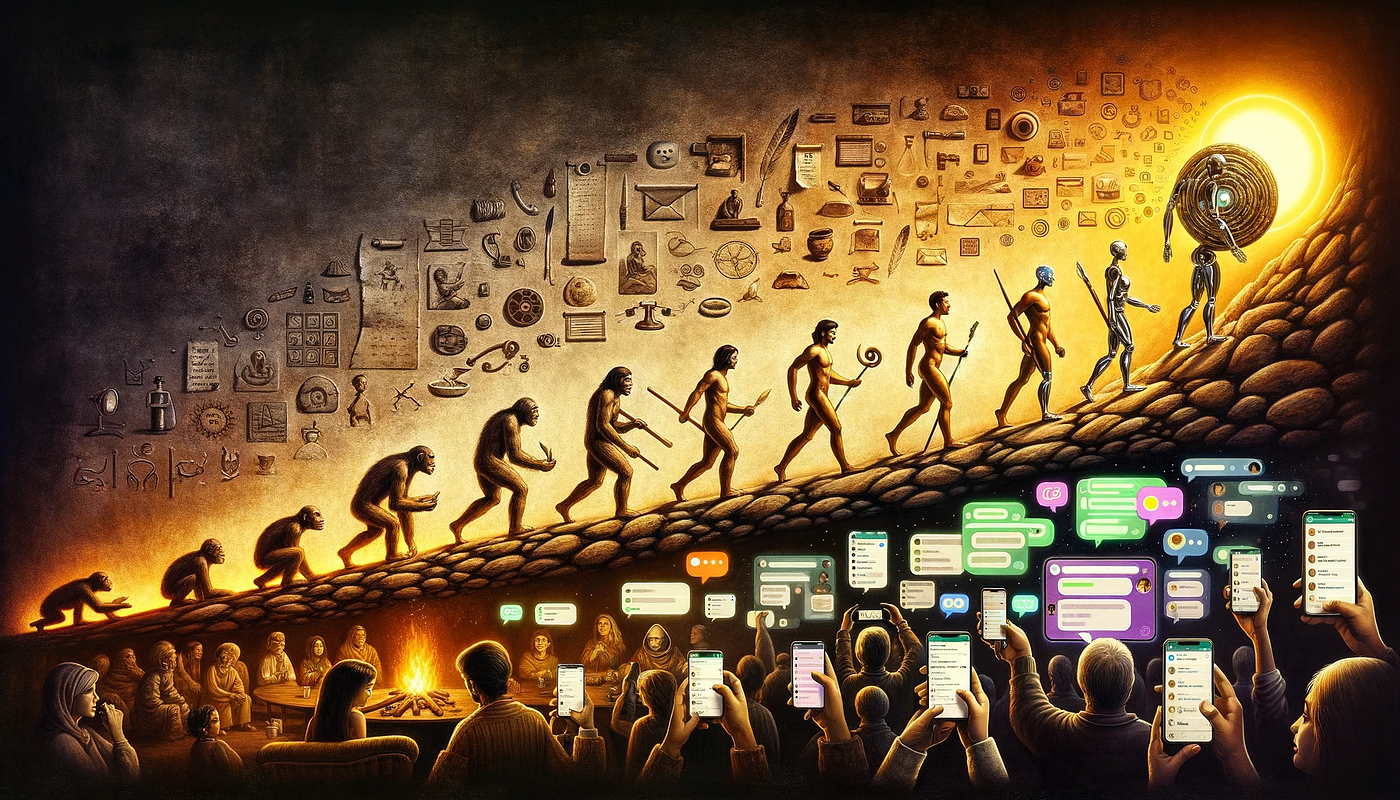In the fast-paced world of technological evolution, the concept of emerging technologies has become a cornerstone in driving innovation and transformation across various industries. These technologies are not only altering the way we live but also redefining how businesses operate, communicate, and thrive. As we delve into the depths of this technological revolution, it is essential to explore how artificial intelligence (AI), the Internet of Things (IoT), quantum computing, blockchain, and other breakthrough technologies are forging new paths toward a digitized and interconnected future.

Transforming Industries Through Emerging Technologies
The transformation of industries is unfolding rapidly as fresh innovations redefine traditional boundaries and introduce new dimensions of efficiency and innovation. This evolution is not merely a trend but a seismic shift that is reshaping the core operational fabric of businesses, governments, and societies worldwide. At the heart of this transformation are cutting-edge innovations such as artificial intelligence (AI), the Internet of Things (IoT), blockchain, and quantum computing, which are paving the way for intelligent, data-driven ecosystems.

Artificial Intelligence: The Brain Behind Modern Enterprises
In other words, among the most transformative technologies, artificial intelligence (AI) stands out for its ability to empower industries with intelligent automation, predictive analytics, and superior decision-making capabilities. AI's application across various sectors, from healthcare to retail, highlights its versatility. For example, AI-driven systems in healthcare enhance diagnostic accuracy, while retail giants employ AI-powered recommendation engines to personalize customer experiences. As businesses embrace AI, the shift toward intelligent business processes is becoming evident. These systems rely on machine learning models to analyze data, optimize supply chains, and improve operational efficiency, positioning organizations to thrive in competitive markets.
Internet of Things: Connecting the Physical and Digital Worlds
The Internet of Things (IoT) is another transformative force, bridging the gap between physical and digital realms. By embedding sensors and connectivity into devices, IoT enables real-time data collection and analysis, fostering smart environments. For instance, IoT-powered systems in agriculture monitor soil conditions and automate irrigation, improving crop yields while conserving resources. In industries like manufacturing, IoT-powered devices drive the concept of smart factories. These facilities leverage interconnected machines to monitor performance, predict maintenance needs, and optimize production cycles, reducing downtime and costs.
Blockchain: Revolutionizing Transparency and Trust
Industries plagued by inefficiencies and mistrust are witnessing a paradigm shift with the advent of blockchain technology. Its decentralized, immutable ledger provides transparency and security, especially in sectors like finance and supply chain management. In supply chains, blockchain ensures the traceability of goods, from raw materials to final products, enabling ethical sourcing and minimizing counterfeit risks. Similarly, in the financial sector, blockchain-based solutions like smart contracts automate processes, eliminate intermediaries, and reduce transaction costs.
Quantum Computing: Solving the Unsolvable
While still in its infancy, quantum computing holds the potential to solve problems that traditional computing cannot address. Industries such as pharmaceuticals and logistics are exploring quantum algorithms to revolutionize drug discovery and optimize complex supply chains. Quantum computing’s ability to process vast datasets simultaneously will eventually enable breakthroughs in areas like climate modelling, artificial intelligence, and cryptography, positioning it as a cornerstone of future technologies.
Distributed Cloud and Edge Computing: Enhancing Data Accessibility
The exponential growth of data has driven the adoption of distributed cloud and edge computing technologies. These innovations address the challenges of latency and bandwidth by processing data closer to its source. For industries like autonomous vehicles and smart cities, edge computing ensures that critical data is analyzed locally, enabling faster decision-making and reducing dependency on centralized data centers. Meanwhile, distributed cloud platforms allow businesses to maintain scalability and flexibility, even as they expand operations globally.
Hyperautomation and the Future of Business
The convergence of RPA & hyper-automation is another example of how industries are being transformed. By automating repetitive tasks and integrating advanced AI-driven workflows, hyper-automation enables businesses to operate with greater agility and efficiency. For example, in finance, hyper-automation streamlines invoice processing and fraud detection, while in healthcare, it improves patient scheduling and administrative workflows. The ability to combine multiple technologies into unified solutions ensures that industries remain adaptable in an ever-changing landscape.
Human-Centered Innovations
Despite the surge in automation and AI, the focus on human-centric solutions remains paramount. Human-centred digital experiences are shaping innovations like virtual reality (VR), generative AI, and digitally immersive environments. These technologies create intuitive interfaces that enhance user interaction, from immersive training in industries like aviation to personalized healthcare applications. Moreover, the rise of remote and digital workspace technologies has transformed the way organizations function. These tools empower employees to collaborate seamlessly across borders, ensuring productivity and inclusivity in today’s globalized economy.
The transformation of industries through emerging technologies is a testament to humanity's drive for innovation and progress. As technologies like AI, IoT, blockchain, and quantum computing continue to evolve, their impact will extend beyond operational efficiencies to create more sustainable, transparent, and human-centric ecosystems. By embracing these advancements, industries are not only preparing for the future but also shaping it.
Data Revolution: Privacy, Security, and Computation
With the digitization, virtualization, and datafication of almost every aspect of human interaction, the privacy and security of everything have become paramount concerns. Emerging technologies such as privacy computation and zero-trust cybersecurity frameworks are addressing these challenges head-on. These solutions ensure that sensitive information is protected from unauthorized access, thus fostering trust in digital platforms. Moreover, blockchain technology has emerged as a disruptive force in ensuring data integrity and transparency. Its decentralized nature is transforming industries like finance, supply chain, and healthcare by offering secure and immutable records. In parallel, distributed cloud and edge computing are enabling faster processing and better management of data, especially in environments where latency is critical.

Redefining Human Experiences Through Technology
One of the hallmarks of technological evolution is its ability to enhance human experiences. The concept of a human-centred digital experience lies at the heart of innovations in virtual reality (VR), generative AI, and digitally extended realities. These technologies are blurring the lines between the virtual and physical worlds, offering immersive environments for education, entertainment, and professional collaboration. Meanwhile, the emergence of remote and digital workspace technologies has further underscored the importance of adaptability and resilience in today’s dynamic work culture. These advancements empower organizations to operate seamlessly, regardless of geographical constraints, while maintaining productivity and collaboration.

Disruptive Technology and the Future of Connectivity
The transition to the 5G era represents a pivotal moment in the evolution of connectivity. As one of the most advanced technologies, 5G is set to unlock unprecedented speeds and low-latency communication, thereby facilitating innovations like the Internet of Behaviors (IoB). By analyzing behavioural data, IoB enables organizations to offer personalized services and predictive insights, ensuring that technology remains aligned with human needs. The rise of quantum computing also promises to redefine computational capabilities, solving complex problems that were previously deemed insurmountable. These developments signify a paradigm shift, where the convergence of cutting-edge innovations will shape the future of technology and its applications.

Intelligent Platforms and Business Optimization
Businesses are leveraging intelligent business processes & vendor platforms to optimize operations and stay ahead in a competitive landscape. These platforms integrate AI-driven insights, hyper-automation, and data analytics to create agile and efficient workflows. By embracing these technologies, organizations can adapt to changing market demands and foster sustainable growth. Furthermore, the emphasis on privacy and security of everything ensures that businesses maintain compliance with regulatory standards while safeguarding consumer trust. This dual focus on innovation and integrity underscores the importance of contemporary technologies in navigating the complexities of a digitized world.
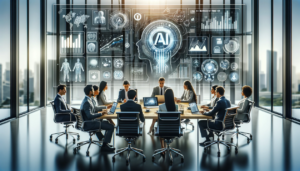
The Societal Impact of Emerging Technologies
Beyond industrial applications, the societal implications of new technologies are equally profound. The adoption of virtualization and datafication has democratized access to knowledge and resources, enabling individuals to participate in the global digital economy. At the same time, concerns surrounding the privacy and security of everything necessitate ethical considerations to ensure that technology serves humanity responsibly. The integration of human-centred digital experiences with technologies like VR and generative AI has revolutionized education, healthcare, and social interactions. By fostering inclusivity and accessibility, these advancements are bridging gaps and creating opportunities for a diverse range of users.

Navigating Challenges and Embracing Opportunities
While the rise of emerging technologies brings immense opportunities, it also presents challenges that must be addressed proactively. Issues like internet security threats, data breaches, and the ethical use of AI demand robust frameworks and collaborative efforts from stakeholders across industries. The development of zero-trust cybersecurity models and privacy computation techniques exemplifies the commitment to mitigating these risks. Think about it, fostering innovation in areas such as distributed cloud & edge computing and digitally extended realities requires investments in research, infrastructure, and talent development. By prioritizing these areas, societies can harness the full potential of advanced technologies and drive sustainable progress.
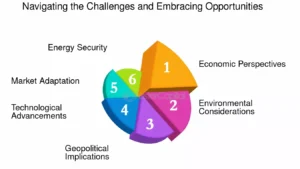
The Road Ahead: Shaping the Future of Technology
As we look toward the future, the interplay between emerging technologies, disruptive technology, and human ingenuity will continue to redefine possibilities. The adoption of breakthrough technologies like quantum computing, blockchain, and 5G will accelerate the pace of innovation, creating transformative impacts across sectors. Simultaneously, the rise of cutting-edge innovations in areas like IoT and artificial intelligence (AI) will shape new paradigms in connectivity, automation, and decision-making.
The journey of technological evolution is far from over. As societies adapt to the rapid pace of change, the focus must remain on fostering a balance between innovation and ethical responsibility. By embracing the future of technology with an open and inclusive mindset, humanity can unlock unprecedented opportunities for growth, resilience, and prosperity.
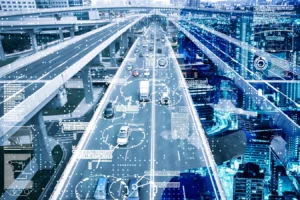
Embracing the Potential of Emerging Technologies
As we stand on the brink of a new era, the significance of innovative technologies cannot be overstated. These innovations, born out of curiosity and necessity, have the power to transform lives, redefine industries, and shape the future. From disruptive technology that challenges the status quo to cutting-edge innovations that push the boundaries of what is possible, the journey of technological progress is one of continuous discovery.
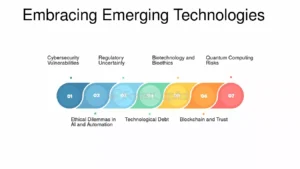
In an era defined by emerging technologies, the convergence of digitization, virtualization, and datafication is revolutionizing every aspect of human life. From enhancing business processes with RPA & hyper-automation to creating immersive experiences through digitally extended realities, these advancements signify the dawn of a new technological age.
Conclusion
As we navigate the complexities of this evolution, the emphasis on privacy and security of everything, coupled with the ethical application of technology, will play a crucial role in shaping a future that is both innovative and inclusive. The path forward is not without challenges. Ethical considerations, societal implications, and the need for sustainable development must be at the forefront of discussions surrounding new technologies. By addressing these issues with a balanced approach, we can ensure that the benefits of innovation are both profound and inclusive.
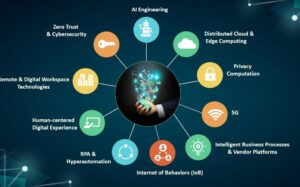
The future of technology is not a distant dream; it is unfolding around us. With a focus on collaboration, adaptability, and vision, humanity can harness the potential of developing technologies to build a world that is not only advanced but also equitable and sustainable. The journey has just begun, and the possibilities are endless.
